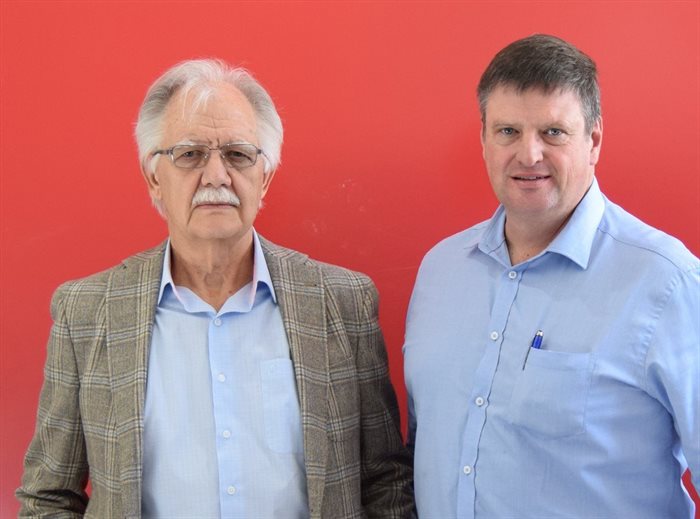According to the Southern African Plastic Pipe Manufacturers Association (Sappma), adhering to local and international standards is key to improving the competitiveness of the local plastic pipe industry. Earlier this year, the merSETA Plastics Chamber released the findings of a study it had conducted with Plastics|SA that aimed to identify the biggest challenges being faced by a hugely challenged plastic pipe manufacturing sector. It also hoped to make recommendations that would aid its growth and strengthening.

Source: Supplied
Jan Venter, CEO of Sappma said the pipes body welcomed this study and worked closely with the researchers to make as much information as possible available to them in order to facilitate the project.
“The results of the merSETA study have certainly highlighted aspects in the pipe sector that require attention or need improvement. One overarching factor was the issue of continued weak demand which resulted in inadequate capital expenditure and lack of research and development. However, we remain resolute in our belief that adherence to international and local standards remain a key ingredient to ensure the survival, success and growth of this important sector,” Venter said.
Taking short-cuts on quality cause long-term harm
“Piping systems is one of the key elements of a country’s infrastructure. Communities rely on the pipes our members provide for their water, sewage, telecommunication and gas supply. Similarly, a wide spectrum of industries, such as mining, agriculture, telecommunication, building and construction need pipelines they can trust not to fail as the cost of disruption and repairs is prohibitive. When produced according to the standards specified and tested by Sappma, we know that plastic pipes will last for 50 to a 100 years before they need to be replaced.
"Unfortunately, we have seen a growing number of players in the industry unwilling to meet our criteria for the sake of cutting costs or taking shortcuts. We are receiving more and more reports of pipes that are underweight or shorter in length that are entering the market. Companies that are guilty of using substandard procedures, skipping certain quality tests or including recycled materials are causing irreparable harm to the reputation and longevity of our industry and will not be awarded membership to Sappma,” Venter stresses.

Source: Supplied
Strengthening and improving the value chain
The research report has also made it clear that the pipe manufacturing sector cannot be viewed in isolation. The broader supply chain and executive players in that supply chain have a direct impact on the industry and therefore need to be approached holistically if the sector’s current position is to be improved. Optimising the value chain and improving quality management systems were sub-questions of the research methodology, and the study has revealed that much could be leveraged in this area.
The South African pipe industry has been subjected to low demand for products from the construction industry during the last few years, which in turn has had a direct impact on the profitability of plastic pipe manufacturers. Added to this were the pressures faced by the country’s gold and platinum mining sectors, which resulted in allocated budgets not being properly applied in mining projects and fewer orders for pipes being placed.
“In addition to the extremely difficult trading conditions, such as the cost of raw materials which have reached an all-time high, the impact of Covid lockdowns, unreliable and expensive electricity supply and other high input costs, plastic pipe manufacturers also have to continuously upgrade their production machinery and invest in laboratory test equipment if they are to remain competitive, produce quality pipes and hope to increase output. However, the cost of importing quality machinery is a huge factor affecting company competitiveness.
"Out-dated technology and machinery continue to burden the industry. Our members are ultimately delivering a service to the end-user, municipalities and communities around the country without passing the burden of cost on to them. They should, therefore, not be expected to carry the financial burden of machinery upgrades alone without government support,” Venter stresses.

Sappma CEO Jan Venter and technical manager Ian Venter
Close partnerships with certification and standards bodies
Although regular audits of factories, systems and products are a key function of Sappma, the pipes body is not in competition with any certification or standards authorities. In fact, a close partnership exists with them to promote quality products and weed out inferior quality plastic piping systems.
“Without continuous intervention, product quality and standards inevitably deteriorate. Thousands of metres of pipe find their way onto the South African market every month. It is impossible for the standards and certification bodies to be everywhere to oversee and regulate all the products. For this reason, Sappma acts as the eyes and ears on the ground. Regular forum meetings take place during which technical standards are discussed and future projects identified.
“Over the past year, government has gone on record on numerous occasion with promises to fast-track high-impact structural reforms in water sanitation and reticulation. As an industry, we can only hope and pray that these intentions will be met with Treasury’s financial commitment. We have the technical skills, world-class experience, manufacturing infrastructure and the motivation needed to restore our industry to its rightful place on the world stage. Together with our members, Sappma will continue to be the flagbearers for maintaining excellent standards and quality through the commissioning of reliable and knowledgeable consultants, pipe manufacturers and installers,” Venter concludes.
































